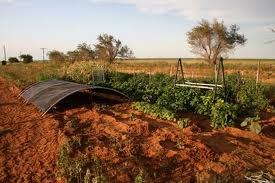What a lovely time of year to rest from summer chores. With fall also comes the time to tend and prep our gardens for next year's season. Here are some tips for fall clean up!

House plants: Clean up the plants by removing dead leaves and debris, prepare to bring them inside before the night temps fall below 55° or cover with sheets to avoid a snap frost.
To insure a pleasing spring display, start with a soil test, this is your fool proof item to insure your bed is ready and waiting for your planting… Then choose bulbs that are firm: avoid any that show bruises or are beginning to mold. Squeeze the bulb gently to be sure that the bulb has not begun to dry out in the skin.
The larger size bulbs will result in a larger, better quality plant, since the first years' nutrients are all contained within the bulb. Many tulips only provide one year of big showy display. Try planting them deeper or select daffodils or crocus, if bloom in successive years is important to you. Remove spent blossoms so the plants energy goes toward developing a bigger bulb and better blooming next year. An exception to this rule is smaller bulbs, like winter aconite, scilla, and grape hyacinth, which are excellent self sowers and will naturalize more quickly if allowed to go to seed. Always allow foliage to yellow before removing. Start looking thru the garden centers and catalogs, the selection is amazing.
Trenching or digging out the entire bed us usually easier than using a bulb planter. The most important consideration is drainage: bulbs are very prone to rot if too wet, drainage is key….if you have concerns place bulbs in raised beds… As a rule of thumb bulbs are planted about three times as deep as the bulb is wide... Purchases from most reputable growers will come with specific planting instructions.. Spread fertilizer lightly over the planting bed.. Apply a 2 to 4 "layer of light mulch such as straw to prevent spring frost & heave damage. Water the area thoroughly after planting.
Seasonal: Soil Test Kits are available from the Penn State Extension office. This is so darn easy! Fill the bag and send it off to Penn State and in a week or so you will have the correct information to amend your soil…what could be easier? You'll want to bump up your soil nutrient with leaves, compost or peat moss.
Now is the time to see what seeds you want to save.. seed saving is almost as easy as the soil test.. you can harvest all your favorite non -hybrid wildflowers, herbs & vegetables. Some herbs can be dug up and brought in for the winter placed on a sunny window sill...they may not perform like they do in the garden but you will be delighted when you can pick parsley in December.
If you like cold weather crops like I do, you know that the sweetest cabbage, Turnips, Rutabaga's and Leeks … along with Brussels sprouts come after a bit of a nip of frost.
Roses: Stop deadheading and do not apply any fertilizer now. Check out those catalogs for next years choices..
Garlic… what's life without Garlic? Time to put in the ground right now…Harvest in July…. So many choices you'll want several varieties for cooking and putting in Olive Oil..
Pears are in full harvest now… pick pears before completely ripe, they tend to get grainy if left on the tree.
Apple trees could do with a bit of natural soil builder, this enables your apple tree to get a head start on next years crop… Follow manufactures instruction for application rate.
Stay tuned in to WPEL 96*5 Wednesday & Friday's at 12:20 p.m. for the latest in gardening & happenings in Susquehanna County.
By Catherine Hynes, Master Gardener, 2011 October/November Newsline

